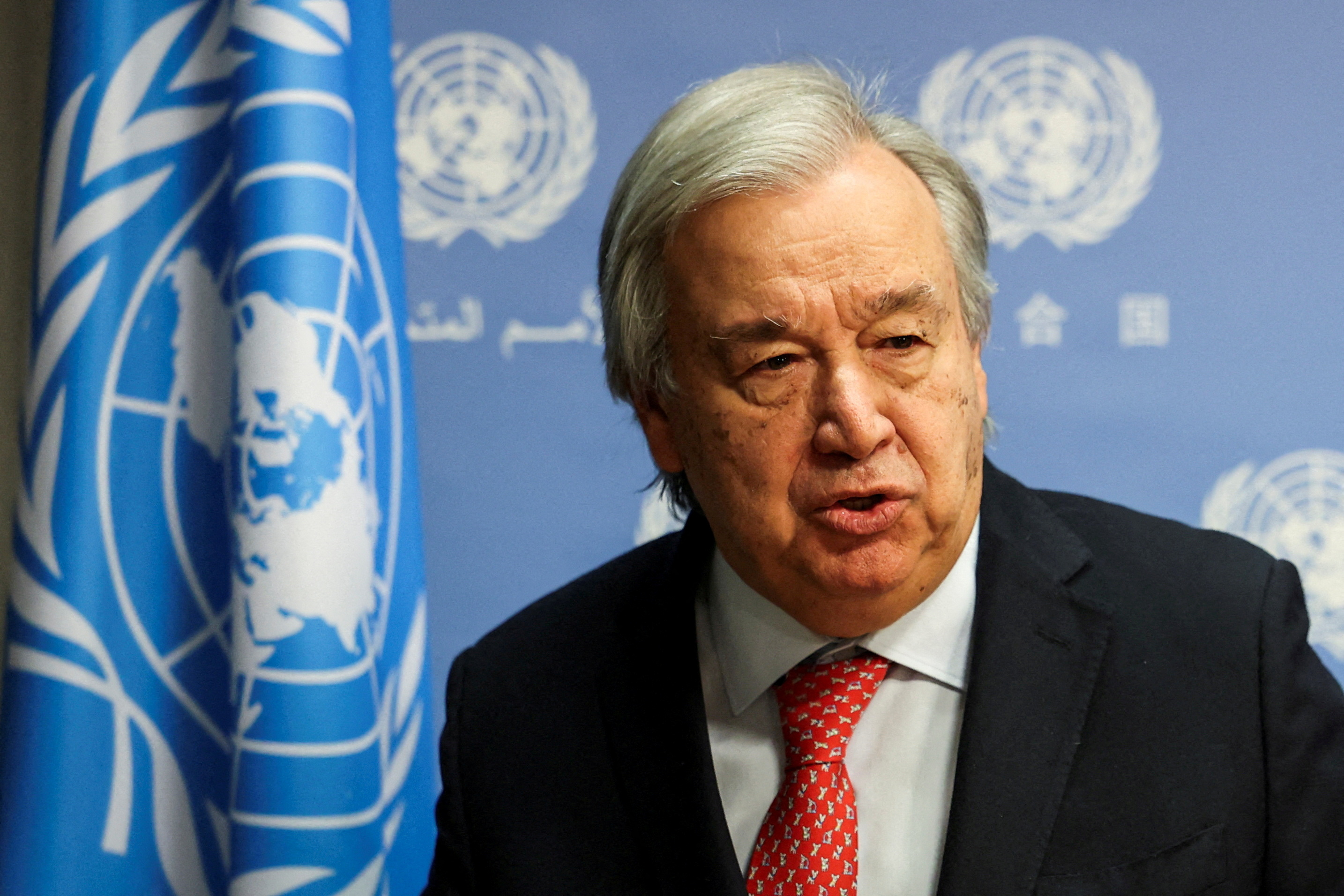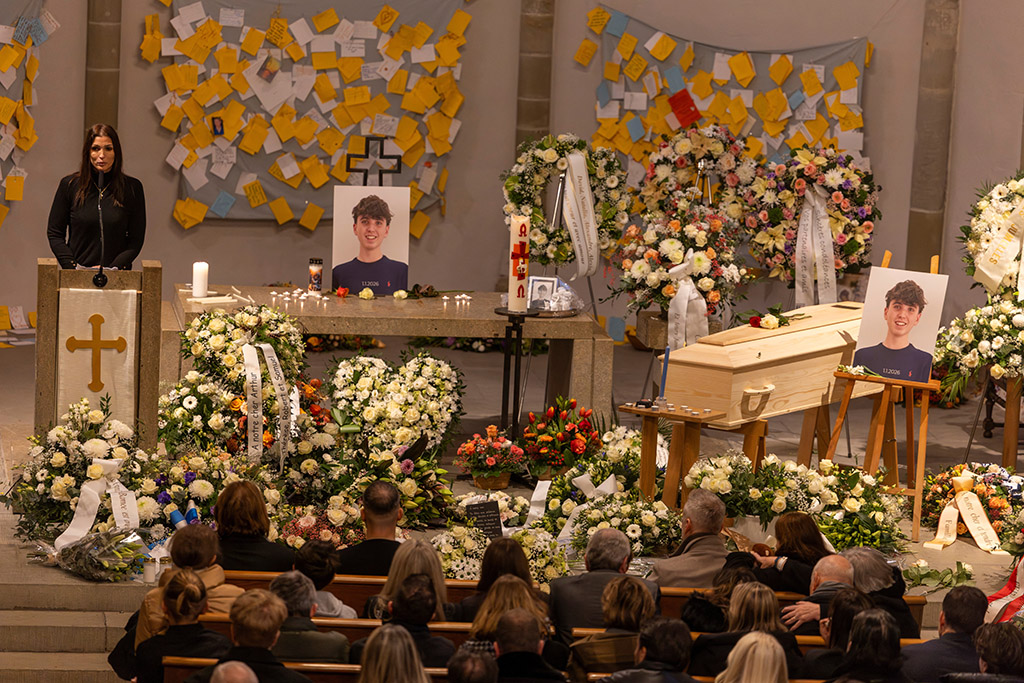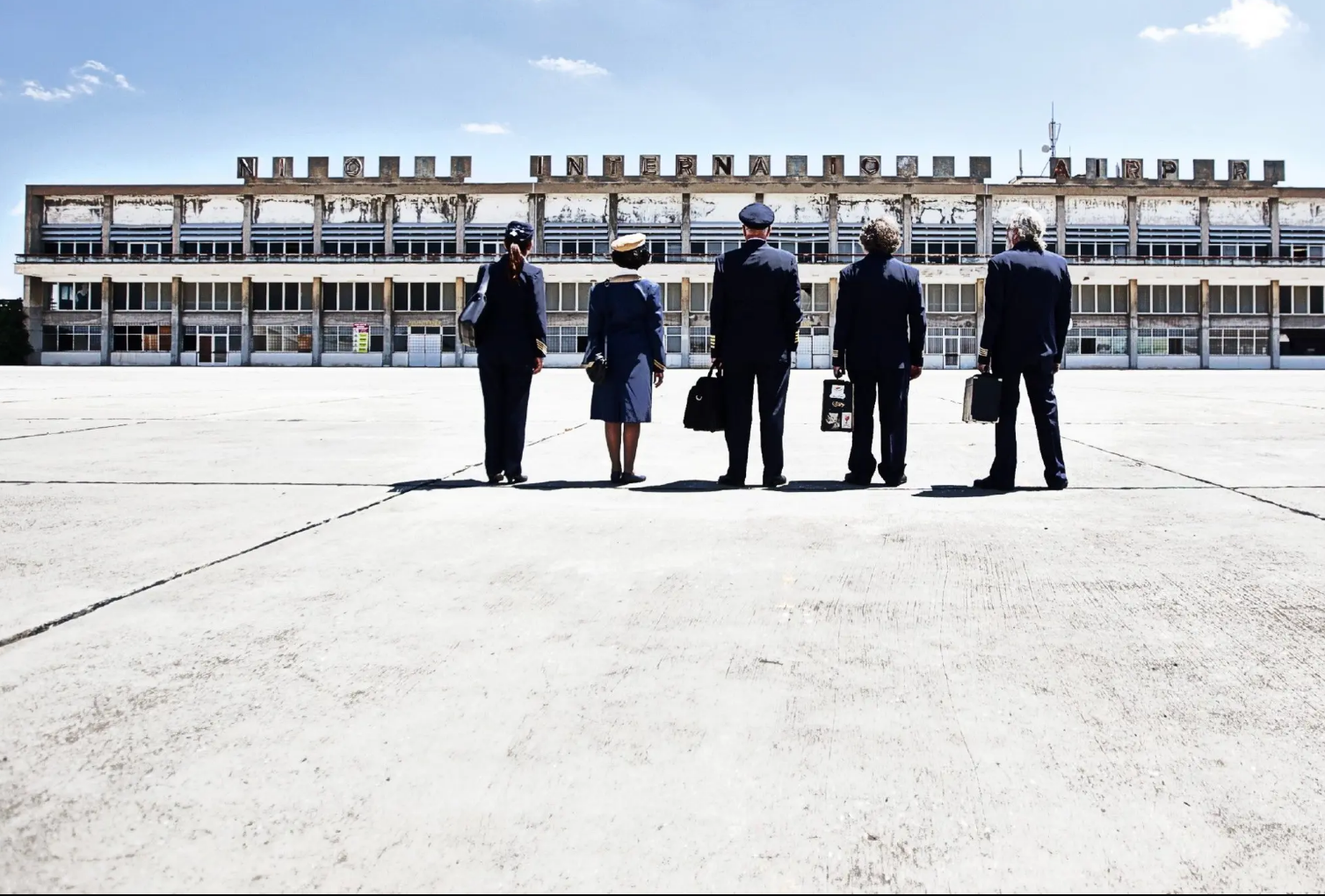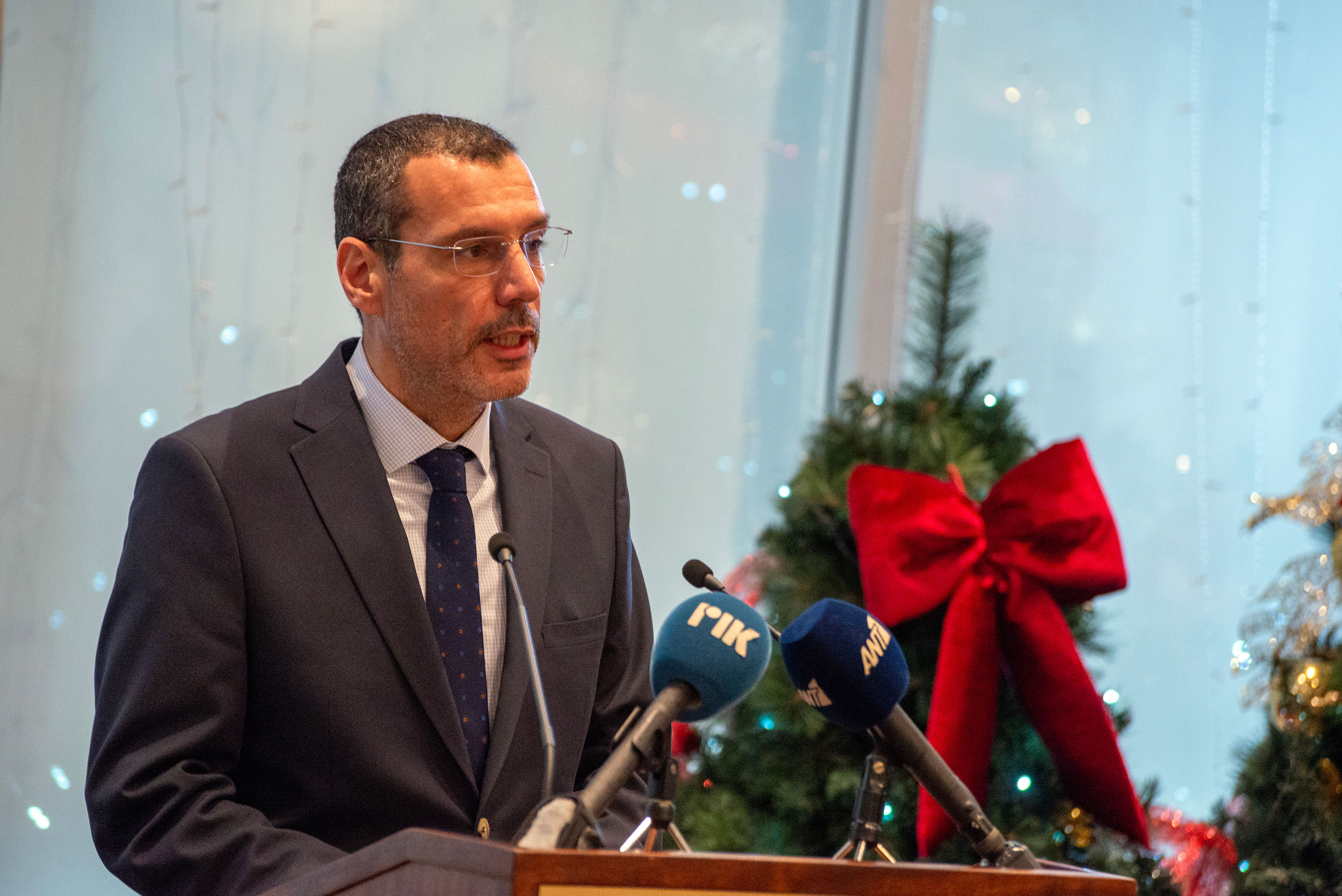Concrete steps taken in Geneva at the informal broader meeting are reassuring, United Nations Secretary General Antonio Guterres said late on Thursday after a number of specific initiatives were agreed with the potential to build trust between the two sides.
If the two sides remain committed “further positive steps are possible,” he added.
“This, together with the decision by all parties to hold another informal meeting at the end of July, 5 their agreement to the appointment of my personal envoy and the meetings between the leaders on the island, are indications of more focused efforts to find a way forward on the Cyprus issue,” the UNSG said in an advance copy of his report on his Good Offices on the island, which circulated in New York overnight.
The report along with the one on Unficyp are expected to be discussed on Monday July 14, just two days before a second broader meeting on Cyprus.
The meeting will start on July 16 with a dinner and will continue the following day with bilateral meetings and the plenary of the conference.
In his reports the UNSG said that over the past six months, Cyprus remained free from serious security incidents, a development he welcomed.
“Periods of increased dialogue and activity in the peace process have coincided with a corresponding restraint from unilateral actions that threaten the security situation on the island,” he said.
However, this calm should not be mistaken for substantive progress, as little has been done to address the underlying military and political issues.
Despite repeated appeals, both sides continue to ignore calls for de-escalation and demilitarisation in and around the buffer zone, he added, expressing particular concern about military constructions that “seek to permanently alter the military status quo,” and warning that concealing military positions within civilian infrastructure “raises serious humanitarian concerns.”
This, he said, poses a risk to civilians. “The imbalance of forces on the island cannot be invoked to justify such violations,” he stressed, once again urging the establishment of a direct military contact mechanism under Unficyp.
Guterres also voices concern over the stalled implementation of the Pyla agreement, which has remained stalled since 2023, calling on both sides to “intensify their constructive engagement.”
Beyond the buffer zone issue, the UNSG warned that “unilateral actions that could heighten tensions and risk undermining the prospects for the resumption of negotiations must be avoided.”
He reiterated concerns regarding the situation in the fenced off area of Varosha, stressing that “the position of the United Nations on this matter remains unchanged.”
“I call on all parties to engage in dialogue aimed at resolving their differences,” he said.
He condemned restrictions on Unficyp’s freedom of movement in Varosha and Strovilia, reiterating that “the mission’s mandate is not confined to the buffer zone but extends to the entire island.”
The Secretary General also expresses concern over divisive narratives and the impact of disinformation, which “erodes trust and undermines efforts toward a common future,” urging leaders to give voice to civil society.
But he did welcome the establishment of a new Technical Committee on Youth. “Youth groups continue to be active agents of peace,” he said.
Despite the UN’s persistent calls, progress toward greater equality and cooperation remains inadequate. The full implementation of the Green Line Regulation and the opening of four new crossing points, as agreed in Geneva, are described as necessary steps.
In the reports the UNSG said military and civilian violations were recorded at an alarming frequency. “Military violations by both sides remain a matter of concern”. A total of 133 cases were documented (78 by the National Guard and 55 by Turkish forces), down from 227 in the previous six months.
Guterres warned that “such violations undermine the authority of the United Nations” and contribute to the militarisation of the buffer zone.
He said 18 new surveillance cameras had been installed in Varosha, bringing the total in the fenced off area to 53 since 2020. “The United Nations continues to consider the government of Türkiye responsible for the situation in Varosha,” the report said.
Cyprus registered a 42 per cent decrease in asylum applications in 2024 compared to the previous year, which the UNSG attributed to a “deterrence policy, especially at sea and along the Green Line.”
The reports also noted that the Committee on Missing Persons exhumed the remains of 17 individuals. Out of 2,002 officially registered missing persons, 1,054 have been identified.
Finally, the report warned that Unficyp is facing “a severe financial crisis,” with $20.9 million in unpaid assessed contributions and nine per cent of civilian posts vacant. These constraints “compromise the timely and safe implementation of the mandate” and have led to delays in security infrastructure projects and the suspension of training.
The UNSG urged the guarantor powers, Greece, Turkey and the United Kingdom, to contribute constructively and reaffirmed his commitment to maintaining dialogue with all sides, guided by relevant Security Council resolutions.







Click here to change your cookie preferences